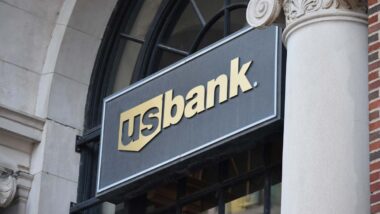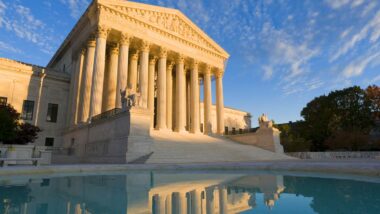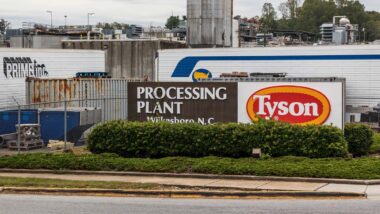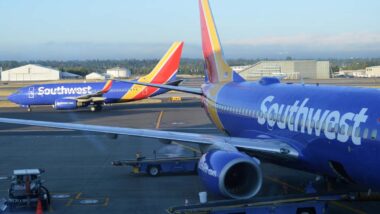Top Class Actions’s website and social media posts use affiliate links. If you make a purchase using such links, we may receive a commission, but it will not result in any additional charges to you. Please review our Affiliate Link Disclosure for more information.
Consumers may be owed business interruption insurance coverage during the coronavirus outbreak, despite industry claims to the contrary.
As COVID-19 sweeps through the nation, countless business are being forced to furlough employees and close their doors following government-issued closures. These closures are having significant impacts on both American consumers and business owners.
It is well known that millions of former employees are struggling with financial uncertainty after losing their jobs. However, business owners may also be struggling due to the sudden lack of income from their businesses.
The American Property Casualty Insurance Association has estimated that small businesses in the United States may be losing between $255 billion and $431 billion each month during the coronavirus closure.
Unfortunately, although many business owners expect that their losses will be covered by their business interruption insurance coverage, they may find that their insurance provider refuses to approve their claims.
What Does Business Interruption Insurance Cover?
Business interruption insurance is often secured by company owners to protect themselves from a situation that forces the business to close. This may occur due to a variety of events, including theft, fire, wind damage, lightning, or natural disasters.
These policies may cover a variety of losses including:
- Lost assets including the cost of merchandise which was damaged by a covered event.
- Lost income due to closures. This is usually calculated based on pre-loss earnings.
- Extra expenses associated with business interruption including the cost of moving to a temporary location.
Exact business interruption insurance coverage will vary depending on the policy, as each insurance provider may include different clauses and exclusions.
Are There Any Business Interruption Insurance Pandemic Coverage Restrictions?
In some business interruption insurance policies, business may have to opt into specific coverages in order to protect themselves from a variety of damaging events. However, other polices may be considered “all risk” coverage policies, meaning that all “risks” are covered except for things that are specifically omitted.
In all risk insurance policies, exclusion clauses may allow insurers to deny claims under certain situations. These clauses may aim to help protect insurers from having to cover unreasonable losses, but could leave business owners out in the cold and forced to foot the bills for losses on their own.
Many businesses are currently contending with confusing “virus” clauses in their business interruption policies. These clauses may generally exempt viruses from coverage or may provide specific exemptions for SARS or other notable viruses.
Can I Still Get Coverage for Coronavirus Closures if my Business Interruption Policy Has a “Virus” Clause?
Your business interruption insurance policy may include a “virus” clause, exempting coverage in the event of a public health crisis. Although insurance companies may use these clauses to deny claims, legal experts argue that these denials won’t stand up to legal scrutiny.
According to the legal experts, the virus is not what is forcing businesses to close their doors. Instead, the true burden is the widespread government-ordered shutdowns caused by the pandemic. Based on this fact, legal experts argue that the exact language of business interruption insurance policies may not apply.
Additionally, claims may not be denied based on justifications that you have suffered “no direct damage to your property.” Legal experts contend that a virus causes real losses as well as direct damage in the form of contamination.
An airborne virus may stick to surfaces in a business for a long period of time, which reportedly counts as physical damage. Similarly, if a virus gets an employee sick, this may also count as physical losses.
Legal experts argue that since the coronavirus can cause real physical damage, claims resulting from the pandemic should be covered by an all risk insurance policy.
Based on these losses and other arguments, claims reportedly deserve to be covered in the wake of coronavirus closures.
What Can You Do if Your Business Interruption Insurance Coverage Claim Has Been Denied?
During the pandemic, many businesses may find their insurance claims denied by their insurers. These companies face billions of dollars in claims resulting from the outbreak, leading industry figures to argue that paying out all of their claims “would damage or destroy the insurance industry in a terrible way.”
However, consumers, legal experts, and policy experts all argue that insurance companies should be forced to pay claims filed due to coronavirus closures.
In fact, as of April 24, eight states have reportedly introduced business interruption insurance bills which would force insurers to pay out claims – primarily those filed by small businesses at risk for permanent closures.
Some of these bills reportedly include terms that would allow insurers to seek reimbursement from the state in exchange for paying claims.
Despite the helpful actions being taken by policymakers and advocates, businesses may still find themselves struggling to survive amidst widespread coronavirus closures and insurance denials. Some of these businesses have taken matters into their own hands by filing businesses interruption insurance coverage lawsuits.
Several bars and restaurants in Chicago filed a lawsuit against Society Insurance, arguing that the company has refused to pay claims for business closures after they were forced to close by Illinois’ governor.
In total, the businesses claim that they will lose around $10 million due to the coronavirus closures – significant losses which led them to file a claim with Society Insurance.
According to the businesses, their claims were automatically denied by the insurer within days or even hours of filing. The bars and restaurants argue that their claims were denied without Society Insurance conducting any “meaningful coverage investigation” into the facts and circumstances surrounding the claims.

The companies claim that their insurance policies specifically include coverage for both contamination and public health orders – both of which allegedly apply during the coronavirus pandemic.
Specifically, the policies provide coverage in an instance where a “public health or other governmental authority…prohibits access to the described premises and adverse ‘publicity’ resulting from the discovery or suspicion of ‘contamination.’”
Despite these terms, Society Insurance reportedly refuses to provide coverage to the Midwest companies during their time of need.
Lloyd’s of London underwriters have also faced legal action from businesses who claim that they were denied coronavirus coverage.
A Florida pizza restaurant took action against Lloyd’s in a business interruption class action lawsuit, claiming that the insurer refuses to provide coverage under their Business Income, Civil Authority, Extra Expense, and Sue and Labor coverage.
Allegedly, Lloyd’s has refused to cover claims “on a wide scale and uniform basis” despite terms of the policy allowing for coverage in the instance that a civil authority prohibits the businesses from operating.
The pizzeria argues that this applies to their situation as they were forced to suspend or reduce their operations after Florida authorities initiated a state of emergency and closures to restaurants.
A Texas movie theater operator has also taken issue against Lloyd’s in a business interruption insurance coverage lawsuit, arguing that the insurer should provide payments under their $1 million policy.
According to the cinema operator, Lloyd’s promised to provide payments in the event of an outbreak – a “pandemic event endorsement” initiated by the company following the 2014 Ebola outbreak. This endorsement allegedly included explicit coverage for “mutations or variations” of “Severe Acute Respiratory Syndrome-associated coronavirus [SARS-CoV],” a category that COVID-19 reportedly falls under.
“On its face, Lloyd’s conduct appears to be nothing more than an attempt to put insureds in a position where they will be forced to accept lowball settlement offers simply from the fear that their insurer will drag out proceedings well past the insured’s ability to remain financially viable,” the business insurance lawsuit argues.
Two Oklahoma Native American tribes – the Chickasaw and Choctaw nations – have also taken action against Lloyd’s of London, arguing that they deserve to be paid under their business interruption insurance coverage after their casinos were forced to close. The tribes say their coverage is particularly important, as they are not eligible for funding under the federal relief programs.
Owners Insurance Company has also faced legal action from their consumers when an Ohio bridal shop filed a business interruption class action lawsuit. Allegedly, the company should provide coverage to the bridal shop because the communicable diseases exclusion doesn’t apply to the property portion of their policy.
The bridal shop seeks compensation for their coronavirus losses “sustained due to the necessary suspension of its operations during the ‘period of restoration’ caused by direct physical loss or damage.”
Similar action has been taken against Hartford Fire Insurance by two French restaurants based out of California. These restaurants have reportedly been forced to furlough 300 employees and close their doors following a Napa County health order.
According to the business interruption insurance coverage lawsuit, Hartford refuses to pay claims under the restaurants’ policy despite explicit coverage for “civil authority” losses.
“Any effort by the Hartford Defendants to deny the reality that the virus causes physical loss and damage would constitute a false and potentially fraudulent misrepresentation that could endanger policyholders and the public,” the business interruption lawsuit argues.
Businesses who have had their claims denied by their business interruption insurance companies may be eligible to take legal action. A lawsuit or class action lawsuit could help businesses recover the money they desperately need to stay afloat during the global pandemic.
Do YOU have a legal claim? Fill out the form on this page now for a free, immediate, and confidential case evaluation. The attorneys who work with Top Class Actions will contact you if you qualify to let you know if an individual Coronavirus business interruption lawsuit or class action lawsuit is best for you. [In general, business interruption lawsuits are filed individually by each plaintiff and are not class actions.] Hurry — statutes of limitations may apply.
Read More Lawsuit & Settlement News:
Wells Fargo Class Action Says Small Shops Denied PPP Loans
Graco TurboBooster & Affix Booster Seats Class Action Lawsuit Investigation
Not Refunded Fees on an American Airlines Refundable Ticket?
How to Deal With Juul in School
ATTORNEY ADVERTISING
Top Class Actions is a Proud Member of the American Bar Association
LEGAL INFORMATION IS NOT LEGAL ADVICE
Top Class Actions Legal Statement
©2008 – 2024 Top Class Actions® LLC
Various Trademarks held by their respective owners
This website is not intended for viewing or usage by European Union citizens.
Get Help – It’s Free
Join a Free COVID-19 Business Interruption Insurance Lawsuit Investigation
If you qualify, an attorney will contact you to discuss the details of your potential case at no charge to you.
PLEASE NOTE: If you want to participate in this investigation, it is imperative that you reply to the law firm if they call or email you. Failing to do so may result in you not getting signed up as a client or getting you dropped as a client.
Oops! We could not locate your form.














I’m almost certain that claims the lawyers say are valid are in fact not valid claims. In Business Interruption policies, the lost income must be due to a direct physical loss. And a civil authority closure (such as what’s happening in the pandemic now) must also be due to a direct physical loss or threat of one. A virus does not cause a direct physical loss. Direct physical losses are those that damage the premises such as a fire, flood or tornado. Viruses can simply be cleaned off and thus don’t damage the physical premises. Plus every policy sold after 2006 contains a specific exclusion for viruses. So as much as lawyers are hoping there are claims or at least claims disputes that they can litigate (they usually make a 33% cut of whatever the settlement or judgment is), they are likely to lose these claims because the policy language is pretty clear in those cases. But perhaps the point of the litigation is not to actually win, but rather to badger insurance companies to pay non meritorious claims just to make the litigation go away so they don’t spend more in litigation that the claim cost would have been (a common tactic by the lawyers).